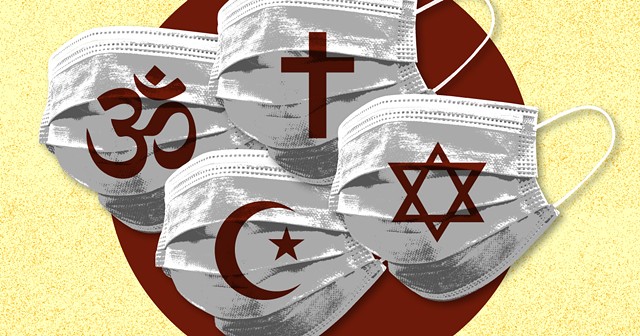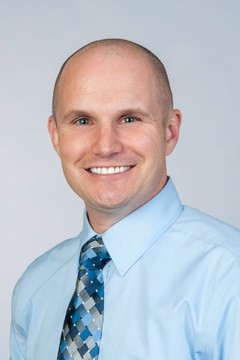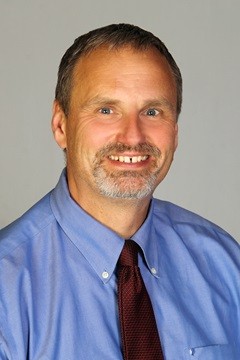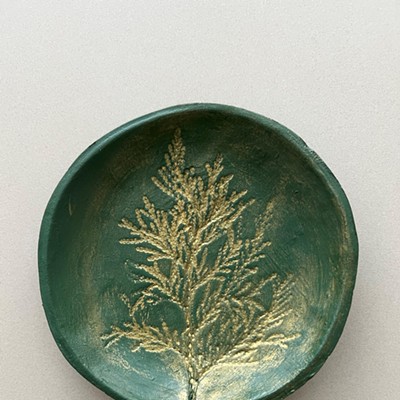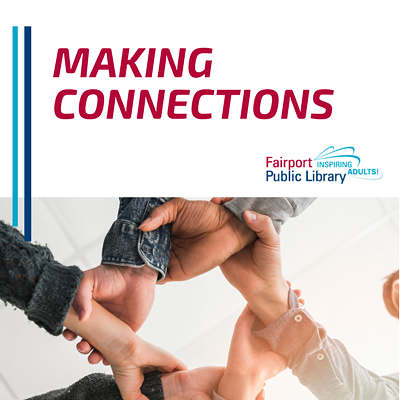[
{
"name": "500x250 Ad",
"insertPoint": "5",
"component": "15667920",
"parentWrapperClass": "",
"requiredCountToDisplay": "1"
}
]
Despite signs that society and the economy are opening back up, hospital patients, particularly those who are chronically or terminally ill, remain largely isolated and vulnerable.
With hospitals still limiting visitations, hospital chaplains have become an indispensable lifeline to patients in need of spiritual comfort. They are at times advisers, spiritual therapists, friends, and liaisons between patients and family, whose services take the form of a song being sung, a poem being recited, and just silent presence.
Chaplains are front-line soldiers in the fight against loneliness.
“Hospital chaplains, they are providing multipurpose care and they are not focusing on religion,” says Zeynab Abdullayeza, a chaplain on a per diem basis at Rochester General Hospital. “It is not clergy — it is more spiritual, emotional support in the crisis.”
At RGH, full-time and per diem chaplains alike are trained to provide interfaith care, as well as support to those who do not subscribe to any religion. The process involves determining the spiritual crisis, developing an acute care plan, and only then are specific religious considerations made in conjunction with outside clergy members. With this religious guidance, Abdullayeza says, the patient can establish a deeper relationship with the divine.
But the job of a chaplain is different. “Chaplains are helping them to connect with themselves, inner self first, and find the strength inside of them and their own background,” she says.
At Rochester General, family members and outside clergy members are still not allowed to visit, except when the patient is at the end of his or her life. Even then, only one person can visit at a time. Beginning on May 15, the professional spiritual care team began an initiative to meet with patients scheduled for elective surgeries prior to their operations. Before this, many of the patients might have gone without a visit from someone outside of the medical team.
The pandemic has also changed how patients interact with the staff chaplains who are readily permitted on the hospital floors. Face masks are required throughout the facility, of course, but when visiting patients who have tested positive for COVID-19, chaplains must wear additional PPE, or personal protective equipment: a gown, gloves, and a face shield that allows the mask to be reused.
Although the need to connect with patients and provide support during the pandemic is arguably stronger than ever, the role of the chaplain is, in many ways, unchanged.
“Most of the time, I would say it’s just meeting the patients where they’re at, discovering ‘Hey, what’s meaningful for you?” RGH’s Spiritual Care Supervisor Levi Gangi says. “How can we help you implement that into your recovery?’”
Gangi says that patients are struggling with similar kinds of the emotional stress and fear of the unknown that they experienced prior to COVID-19. In fact, there hasn’t been an increase in chaplain visits to RGH patients during the crisis, he says.
But that doesn’t mean the chaplains have not had to adjust their approach to providing spiritual care. “We’re doing a lot more staff support than we normally would,” Gangi says. In addition to talking with staff members about their worries and current struggles, the chaplains at RGH hold mindfulness meetings, providing guided meditation on different floors of the hospital.
For the hospital’s Palliative Care Chaplain Clif Genge, the pandemic has hit especially close to home. At the end of April, Genge had contracted the novel coronavirus, but was able to self-quarantine at home and manage his symptoms without having to be hospitalized. For him, the illness was comparable to having a severe case of the flu. But the experience has enabled him to have more empathy for the COVID-19 patients with whom he visits.
“You can’t really know how they feel, but having a sense of the unknowns and the fears and the wonderings that they might be going through allows you to just be more present with them in that moment, and be more receptive to allowing them to talk about how they feel,” Genge says. “A lot of times, if we understand more about what’s in ourselves, then we can learn to come alongside people in different moments.”
When visiting with patients, Genge’s focus is on shared human connection. “I happen to be a Christian, but the person that I’m ministering to might believe in God but not really know what form that takes, they might be Muslim, they might be Hindu, he says. “But really, what I find is that it’s a terrible thing to go through, being in the hospital — whether having COVID or having had a stroke or a heart attack or whatever. It’s pretty scary. The most important thing is that we’re two humans going through a horrible thing.”
Genge, who sees more patients than any other chaplain on staff, schedules 12 to 15 visits per day — face-to-face visits with patients, phone or video calls with family members, and sometimes both. Due to the visiting restrictions, the dynamic between patients and family members has taken a hit, he says, making follow-ups with family all the more vital.
There’s also the pressing need to help those in the hospital reach their spiritual support system, outside of RGH. Because of decreased visitors, it can be challenging to administer the specific rites and rituals of a patient’s particular religion, Genge says. In such cases, chaplains can again initiate a video call or other digital communication between the patient and his or her spiritual leader.
“That’s what we’re here for, is to help get people through these difficult times in whatever way that we possibly can,” Genge says. “It’s not necessarily about what I can or can’t do, it’s how can I connect them with the best possible thing that can be done for them that meets their needs.”
The pandemic has forced chaplains to be more ingenious about how they connect patients with their loved ones via phone and video conferencing tools such as FaceTime, Skype, and Zoom. But it’s also brought greater awareness about alternative options for communication after the pandemic subsides, Genge says.
For Genge, the mask has become a powerful symbol during the COVID-19 pandemic, a tangible reminder of our common human experience. “It never ceases to amaze how much more we are alike than we are different,” he says. “And physically, it’s a little obvious because we’re all wearing masks now, so you can’t tell who’s who anymore.”
Daniel J. Kushner is CITY’s music editor. He can be reached at [email protected].
With hospitals still limiting visitations, hospital chaplains have become an indispensable lifeline to patients in need of spiritual comfort. They are at times advisers, spiritual therapists, friends, and liaisons between patients and family, whose services take the form of a song being sung, a poem being recited, and just silent presence.
Chaplains are front-line soldiers in the fight against loneliness.
“Hospital chaplains, they are providing multipurpose care and they are not focusing on religion,” says Zeynab Abdullayeza, a chaplain on a per diem basis at Rochester General Hospital. “It is not clergy — it is more spiritual, emotional support in the crisis.”
At RGH, full-time and per diem chaplains alike are trained to provide interfaith care, as well as support to those who do not subscribe to any religion. The process involves determining the spiritual crisis, developing an acute care plan, and only then are specific religious considerations made in conjunction with outside clergy members. With this religious guidance, Abdullayeza says, the patient can establish a deeper relationship with the divine.
But the job of a chaplain is different. “Chaplains are helping them to connect with themselves, inner self first, and find the strength inside of them and their own background,” she says.
At Rochester General, family members and outside clergy members are still not allowed to visit, except when the patient is at the end of his or her life. Even then, only one person can visit at a time. Beginning on May 15, the professional spiritual care team began an initiative to meet with patients scheduled for elective surgeries prior to their operations. Before this, many of the patients might have gone without a visit from someone outside of the medical team.
The pandemic has also changed how patients interact with the staff chaplains who are readily permitted on the hospital floors. Face masks are required throughout the facility, of course, but when visiting patients who have tested positive for COVID-19, chaplains must wear additional PPE, or personal protective equipment: a gown, gloves, and a face shield that allows the mask to be reused.
Although the need to connect with patients and provide support during the pandemic is arguably stronger than ever, the role of the chaplain is, in many ways, unchanged.
“Most of the time, I would say it’s just meeting the patients where they’re at, discovering ‘Hey, what’s meaningful for you?” RGH’s Spiritual Care Supervisor Levi Gangi says. “How can we help you implement that into your recovery?’”
Gangi says that patients are struggling with similar kinds of the emotional stress and fear of the unknown that they experienced prior to COVID-19. In fact, there hasn’t been an increase in chaplain visits to RGH patients during the crisis, he says.
But that doesn’t mean the chaplains have not had to adjust their approach to providing spiritual care. “We’re doing a lot more staff support than we normally would,” Gangi says. In addition to talking with staff members about their worries and current struggles, the chaplains at RGH hold mindfulness meetings, providing guided meditation on different floors of the hospital.
For the hospital’s Palliative Care Chaplain Clif Genge, the pandemic has hit especially close to home. At the end of April, Genge had contracted the novel coronavirus, but was able to self-quarantine at home and manage his symptoms without having to be hospitalized. For him, the illness was comparable to having a severe case of the flu. But the experience has enabled him to have more empathy for the COVID-19 patients with whom he visits.
“You can’t really know how they feel, but having a sense of the unknowns and the fears and the wonderings that they might be going through allows you to just be more present with them in that moment, and be more receptive to allowing them to talk about how they feel,” Genge says. “A lot of times, if we understand more about what’s in ourselves, then we can learn to come alongside people in different moments.”
When visiting with patients, Genge’s focus is on shared human connection. “I happen to be a Christian, but the person that I’m ministering to might believe in God but not really know what form that takes, they might be Muslim, they might be Hindu, he says. “But really, what I find is that it’s a terrible thing to go through, being in the hospital — whether having COVID or having had a stroke or a heart attack or whatever. It’s pretty scary. The most important thing is that we’re two humans going through a horrible thing.”
Genge, who sees more patients than any other chaplain on staff, schedules 12 to 15 visits per day — face-to-face visits with patients, phone or video calls with family members, and sometimes both. Due to the visiting restrictions, the dynamic between patients and family members has taken a hit, he says, making follow-ups with family all the more vital.
There’s also the pressing need to help those in the hospital reach their spiritual support system, outside of RGH. Because of decreased visitors, it can be challenging to administer the specific rites and rituals of a patient’s particular religion, Genge says. In such cases, chaplains can again initiate a video call or other digital communication between the patient and his or her spiritual leader.
“That’s what we’re here for, is to help get people through these difficult times in whatever way that we possibly can,” Genge says. “It’s not necessarily about what I can or can’t do, it’s how can I connect them with the best possible thing that can be done for them that meets their needs.”
The pandemic has forced chaplains to be more ingenious about how they connect patients with their loved ones via phone and video conferencing tools such as FaceTime, Skype, and Zoom. But it’s also brought greater awareness about alternative options for communication after the pandemic subsides, Genge says.
For Genge, the mask has become a powerful symbol during the COVID-19 pandemic, a tangible reminder of our common human experience. “It never ceases to amaze how much more we are alike than we are different,” he says. “And physically, it’s a little obvious because we’re all wearing masks now, so you can’t tell who’s who anymore.”
Daniel J. Kushner is CITY’s music editor. He can be reached at [email protected].
Speaking of...
-

Mask mandate for New York schools to end Wednesday
Feb 28, 2022 -
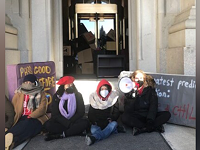
Hochul confirms state's eviction moratorium ends Jan. 15
Jan 12, 2022 -

Hochul: COVID-19 winter surge is here
Dec 17, 2021 - More »
Latest in News
More by Daniel J. Kushner
-

Album Review | 'After Sunrise'
Apr 9, 2024 -

Opera Review | 'Dialogues des Carmélites'
Apr 5, 2024 -
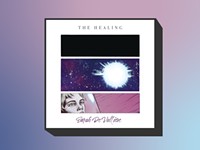
Music Review | 'The Healing'
Apr 4, 2024 - More »
